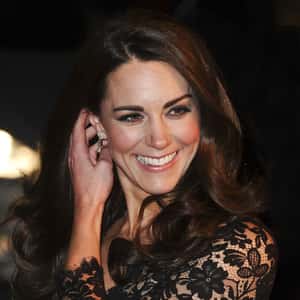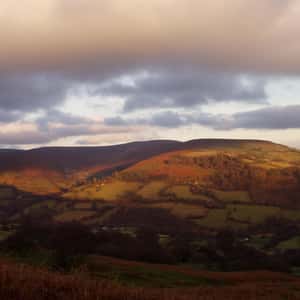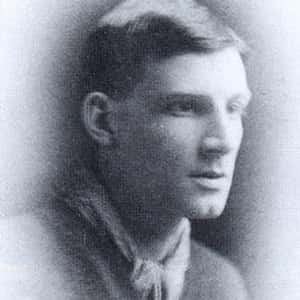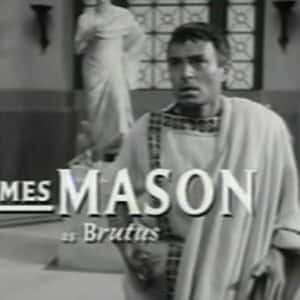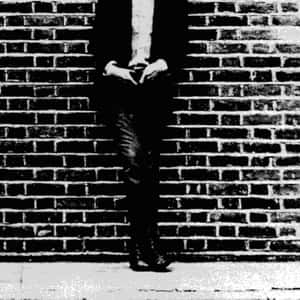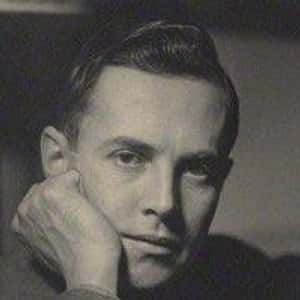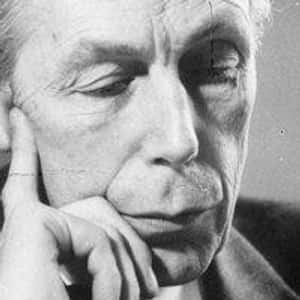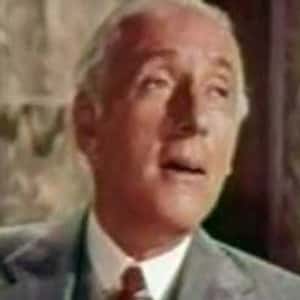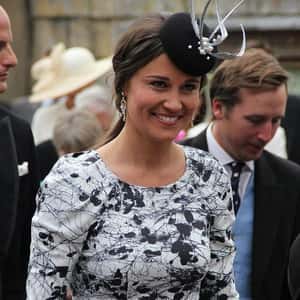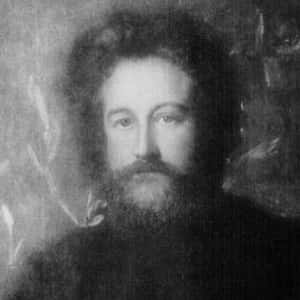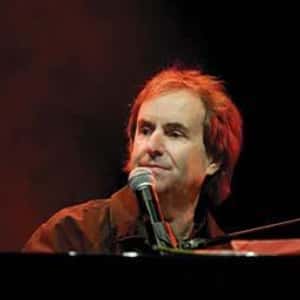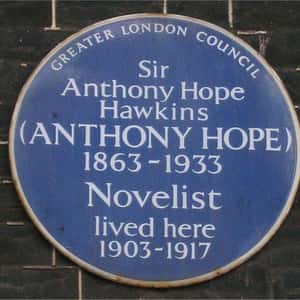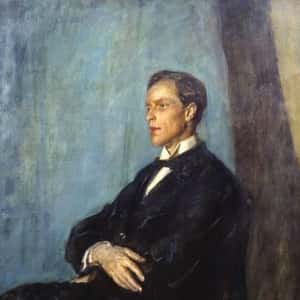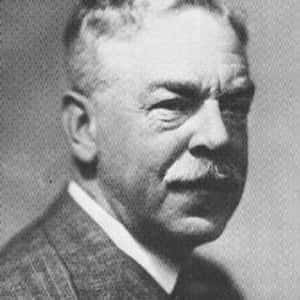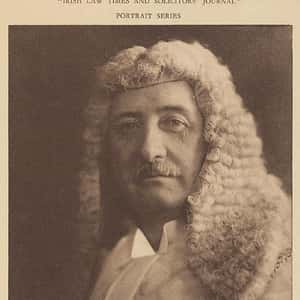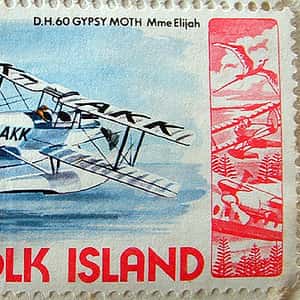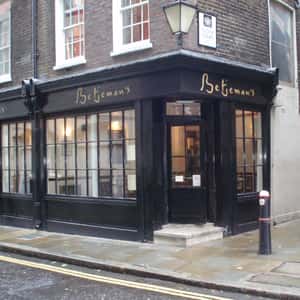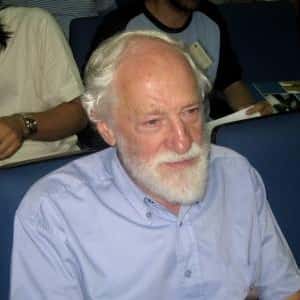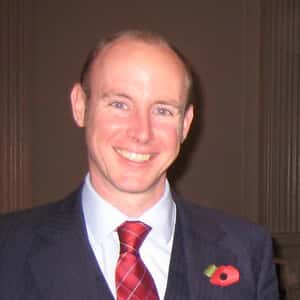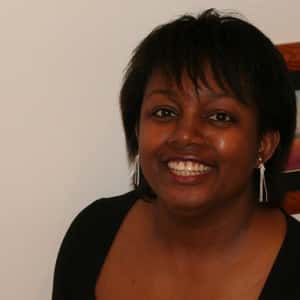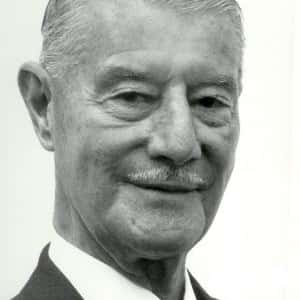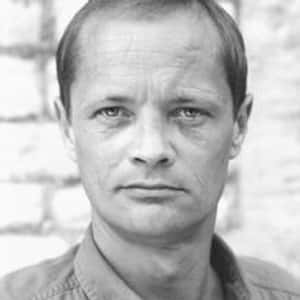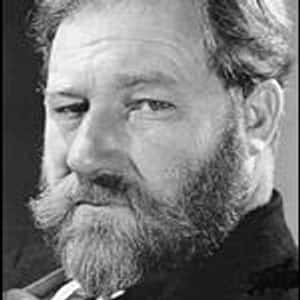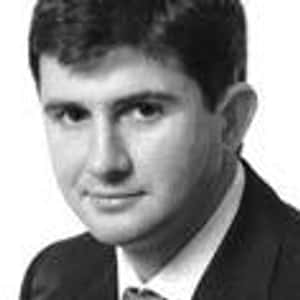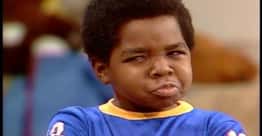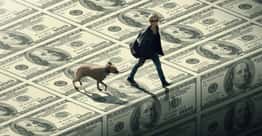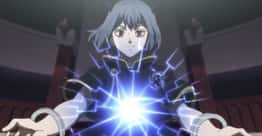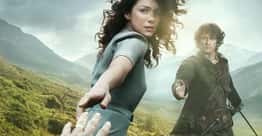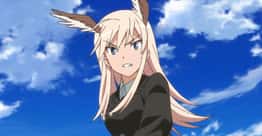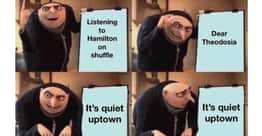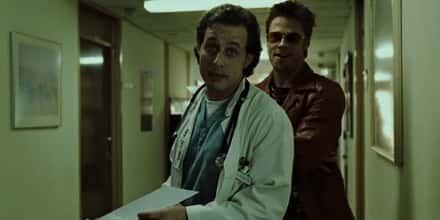Famous Marlborough College Alumni
Voting Rules
People on this list must have gone to Marlborough College and be of some renown.
List of famous alumni from Marlborough College, with photos when available. Prominent graduates from Marlborough College include celebrities, politicians, business people, athletes and more. This list of distinguished Marlborough College alumni is loosely ordered by relevance, so the most recognizable celebrities who attended Marlborough College are at the top of the list. This directory is not just composed of graduates of this school, as some of the famous people on this list didn't necessarily earn a degree from Marlborough College.
This list includes Catherine, Duchess of Cambridge, Nick Drake and more.
This list answers the questions “Which famous people went to Marlborough College?” and “Which celebrities are Marlborough College alumni?”- Kate Middleton holds the title of Princess of Wales, a position she assumed after her marriage to Prince William, Duke of Cambridge. Born on January 9, 1982, in Reading, Berkshire, England, she hails from a family with ties to British aristocracy. Her parents, Michael and Carole Middleton, own Party Pieces, a successful party supply company. Catherine's early life was fairly normal, with her education beginning at St. Andrew's School in Pangbourne and later continuing at Marlborough College in Wiltshire. Catherine first crossed paths with Prince William in 2001 while attending the University of St Andrews in Scotland. Their friendship blossomed into romance, making headlines across the globe due to William's royal lineage. After a brief split in 2007, the couple reconciled and announced their engagement in November 2010. The world watched as they exchanged vows in a grand ceremony at Westminster Abbey in April 2011, following which Catherine officially became the Duchess of Cambridge. As the Duchess of Cambridge, Catherine quickly became a public figure admired for her grace, style, and commitment to charitable causes. She works closely with organizations addressing mental health issues, addiction, and child development, demonstrating a deep dedication to improving lives. As a mother of three - Prince George, Princess Charlotte, and Prince Louis - she balances her public duties with a private life, reflecting an image of modern royalty. Despite the pressures and scrutiny that come with her role, Catherine continues to navigate her path with poise and dignity, contributing to her enduring appeal.
- Dig Deeper...What Will Kate Middleton Name Her Baby?
- And Deeper...A Day In The Life Of William And Kate
- #66 of 227 onThe Most Trustworthy Celebrities In The World
- Novelist, Author, WriterCharles Bruce Chatwin (13 May 1940 – 18 January 1989) was an English travel writer, novelist and journalist. His first book, In Patagonia (1977), established Chatwin as a travel writer, although he considered himself instead a storyteller, interested in bringing to light unusual tales. He won the James Tait Black Memorial Prize for his novel On the Black Hill (1982), while his novel Utz (1988) was shortlisted for the Man Booker Prize. In 2008 The Times ranked Chatwin as number 46 on their list of "50 Greatest British Writers Since 1945." Chatwin was born in Sheffield, England. After completing his secondary education at Marlborough College, he went to work at the age of 18 at Sotheby's in London, where he gained an extensive knowledge of art and eventually ran the auction house's Antiquities and Impressionist Art departments. In 1966 he left Sotheby's to read archaeology at the University of Edinburgh, but he abandoned his studies after two years to pursue a career as a writer. The Sunday Times Magazine hired Chatwin in 1972. He travelled the world for work and interviewed figures such as the politicians Indira Gandhi and André Malraux. He left the magazine in 1974 to visit Patagonia, Argentina; a trip that inspired his first book. He wrote five other books, including The Songlines (1987), about Australia, which was a bestseller. His work is credited with reviving the genre of travel writing, and his works influenced other writers such as William Dalrymple, Claudio Magris, Philip Marsden, Luis Sepúlveda, and Rory Stewart.
- Poet, Memoirist, WriterSiegfried Loraine Sassoon, (8 September 1886 – 1 September 1967) was an English poet, writer, and soldier. Decorated for bravery on the Western Front, he became one of the leading poets of the First World War. His poetry both described the horrors of the trenches and satirised the patriotic pretensions of those who, in Sassoon's view, were responsible for a jingoism-fuelled war. Sassoon became a focal point for dissent within the armed forces when he made a lone protest against the continuation of the war in his "Soldier's Declaration" of 1917, culminating in his admission to a military psychiatric hospital; this resulted in his forming a friendship with Wilfred Owen, who was greatly influenced by him. Sassoon later won acclaim for his prose work, notably his three-volume fictionalised autobiography, collectively known as the "Sherston trilogy".
- Journalist, Writer, PresenterAlan Ross McWhirter (12 August 1925 – 27 November 1975) was, with his twin brother, Norris, the co-founder in 1955 of Guinness Book of Records (known since 2000 as Guinness World Records) and a contributor to TV programme Record Breakers. He was murdered by the Provisional Irish Republican Army (IRA) in 1975.
- Film Producer, Screenwriter, ActorJames Mason, a distinguished English actor, was renowned for his rich, distinctive voice and often played deeply complex characters. Born on May 15, 1909, in Huddersfield, Yorkshire, England, he developed an interest in acting during his college years at Cambridge University, where he studied architecture. Initially, he worked in regional repertory theaters before launching his film career in the late 1930s. Mason's breakthrough role came with the British thriller Odd Man Out (1947), which earned him international recognition. He then moved to Hollywood where he starred in iconic films such as A Star Is Born (1954), North by Northwest (1959), and Lolita (1962). His portrayal of complicated, even villainous characters, combined with his nuanced performances, made him one of the most compelling actors of his time. Despite not winning, Mason received three Academy Award nominations for his performances in A Star is Born, Georgy Girl (1966), and The Verdict (1982). In addition to his illustrious film career, Mason was also a prolific television actor, lending his talents to miniseries and TV movies. He was also an avid animal lover, co-authoring several books on cats with his wife, actress Pamela Mason. James Mason passed away on July 27, 1984, leaving behind a legacy in cinema that continues to inspire and captivate audiences worldwide. His contribution to the world of cinema has even been recognized by a star on the Hollywood Walk of Fame.More James Mason
- #238 of 574 onThe Best Actors In Film History
- #176 of 200 onThe Coolest Actors Ever
- #129 of 188 onThe Greatest Actors Who Have Never Won An Oscar (For Acting)
- Guitarist, Songwriter, MusicianNick Drake, an English singer-songwriter and musician, was born on June 19, 1948. His early life was spent in Tanworth-in-Arden, a small village in the English county of Warwickshire, where his musical talent began to flourish. Drake attended Marlborough College, Cambridge University, and the University of Aix-Marseille in France, reflecting his broad intellectual curiosity. During his time at Cambridge, he studied English Literature, a discipline that would significantly influence his songwriting. Drake's music career was characterized by his unique and innovative approach to folk music. His discography consists of three studio albums: Five Leaves Left (1969), Bryter Layter (1970), and Pink Moon (1972). Despite being largely unrecognized during his lifetime, these works have posthumously gained significant critical acclaim for their lyrical depth and melodic complexity. Drake's intricate finger-picking guitar style, coupled with his gentle, breathy vocals and introspective lyrics, created a sound that was distinctively his own. Sadly, Drake's life was cut short when he passed away at the young age of 26. Behind his calm demeanor, Drake struggled with depression, a theme often reflected in his poignant lyrics. His untimely death has only added to the enigmatic aura surrounding his persona and music. Today, Nick Drake is remembered as one of the most influential figures in folk music, with his legacy living on through the countless musicians he has inspired.More Nick Drake
- Dig Deeper...The 365+ Most Famous Geminis
- #442 of 557 onThe 250+ Best Singers Of All Time, Ranked
- #363 of 864 onThe 250+ Greatest Rock Bands Of All Time, Ranked
- PoliticianSir Christopher Robert Chope (born 19 May 1947) is a British barrister and Conservative politician. He is the Member of Parliament for Christchurch. A Brexit advocate, he has been supportive of Leave Means Leave, a Eurosceptic pressure group.
- Novelist, WriterJohn Beverley Nichols (9 September 1898 – 15 September 1983) was an English author, playwright, journalist, composer, and public speaker.
- CuratorAnthony Frederick Blunt (26 September 1907 – 26 March 1983), styled as Sir Anthony Blunt, KCVO, from 1956 to 1979, was a leading British art historian who in 1964, after being offered immunity from prosecution, confessed to having been a Soviet spy. Blunt had been a member of the Cambridge Five, a group of spies working for the Soviet Union from some time in the 1930s to at least the early 1950s. His confession, a closely held secret for many years, was revealed publicly by Prime Minister Margaret Thatcher in November 1979. He was stripped of his knighthood immediately thereafter. Blunt was professor of art history at the University of London, director of the Courtauld Institute of Art, and Surveyor of the Queen's Pictures. His 1967 monograph on the French Baroque painter Nicolas Poussin is still widely regarded as a watershed book in art history. His teaching text and reference work Art and Architecture in France 1500–1700, first published in 1953, reached its fifth edition in a slightly revised version by Richard Beresford in 1999, when it was still considered the best account of the subject.
- Actor, Voice actingWilfrid Hyde-White (12 May 1903 – 6 May 1991) was a British character actor of stage, film and television, who achieved international recognition in his later years for his role as Colonel Pickering in the 1964 film version of the musical My Fair Lady.
- Philippa Charlotte Matthews (née Middleton; born 6 September 1983) is an English socialite, author, and columnist. The younger sister of the Duchess of Cambridge, she began receiving media attention with her appearance as the maid of honour at her sister's wedding to Prince William.More Pippa Middleton
- #1037 of 1,140 onThe Most Beautiful Women In The World
- #418 of 1,104 onThe Most Beautiful Celebrities Of Our Time
- #170 of 219 onFamous Women You'd Want to Have a Beer With
- Novelist, Designer, Graphic DesignerWilliam Morris was an English textile designer, poet, novelist, translator, and socialist activist. Associated with the British Arts and Crafts Movement, he was a major contributor to the revival of traditional British textile arts and methods of production. His literary contributions helped to establish the modern fantasy genre, while he played a significant role in propagating the early socialist movement in Britain. Born in Walthamstow, Essex to a wealthy middle-class family, Morris came under the strong influence of medievalism while studying Classics at Oxford University, there joining the Birmingham Set. After university he trained as an architect, married Jane Burden, and developed close friendships with the Pre-Raphaelite artists Edward Burne-Jones and Dante Gabriel Rossetti and with the Neo-Gothic architect Philip Webb. Webb and Morris designed a family home, Red House in Kent, where the latter lived from 1859 to 1865, before relocating to Bloomsbury, central London. In 1861, Morris founded a decorative arts firm with Burne-Jones, Rossetti, Webb, and others: the Morris, Marshall, Faulkner & Co.More William Morris
- #382 of 508 onThe 500+ Best Writers of All Time
- #148 of 162 onThe Best Fantasy Authors
- #51 of 67 onThe Best English Poets of All Time
- Guitarist, Musician, Singer-songwriterChristopher John Davison (born 15 October 1948), known professionally as Chris de Burgh, is an Irish singer-songwriter and instrumentalist. He started out as an art rock performer but subsequently started writing more pop-oriented material. He has had several top 40 hits in the UK and two in the US, but he is more popular in other countries, particularly Norway and Brazil. His 1986 love song "The Lady in Red" reached number one in several countries. De Burgh has sold over 45 million albums worldwide.
- PhysicianJohn Beamish Dossetor, (born 19 July 1925) is a Canadian physician and bioethicist who is notable for co–coordinating the first kidney transplant in Canada and the Commonwealth.
- Novelist, Barrister, WriterSir Anthony Hope Hawkins, better known as Anthony Hope (9 February 1863 – 8 July 1933), was an English novelist and playwright. He was a prolific writer, especially of adventure novels but he is remembered predominantly for only two books: The Prisoner of Zenda (1894) and its sequel Rupert of Hentzau (1898). These works, "minor classics" of English literature, are set in the contemporaneous fictional country of Ruritania and spawned the genre known as Ruritanian romance, works set in fictional European locales similar to the novels. Zenda has inspired many adaptations, most notably the 1937 Hollywood movie of the same name.
- Politician, BarristerWilliam Allen Jowitt, 1st Earl Jowitt, (15 April 1885 – 16 August 1957) was a British Labour politician and lawyer, who served as Lord High Chancellor of Great Britain under Clement Attlee from 1945 to 1951.
- Mechanical engineer, EngineerSir Herbert Nigel Gresley (19 June 1876 – 5 April 1941) was a British railway engineer. He was one of Britain's most famous steam locomotive engineers, who rose to become Chief Mechanical Engineer (CME) of the London and North Eastern Railway (LNER). He was the designer of some of the most famous steam locomotives in Britain, including the LNER Class A1 and LNER Class A4 4-6-2 Pacific engines. An A1 Pacific, Flying Scotsman, was the first steam locomotive officially recorded over 100 mph in passenger service, and an A4, number 4468 Mallard, still holds the record for being the fastest steam locomotive in the world (126 mph). Gresley's engines were considered elegant, both aesthetically and mechanically. His invention of a three-cylinder design with only two sets of Walschaerts valve gear, the Gresley conjugated valve gear, produced smooth running and power at lower cost than would have been achieved with a more conventional three sets of Walschaerts gear.
- Politician, BarristerSir William Moore, 1st Baronet, PC (NI), DL (22 November 1864 – 28 November 1944) was a Unionist member of the British House of Commons from Ireland and a Judge of Ireland, then of Northern Ireland. He was created a Baronet (of Moore Lodge, Ballymoney, County Antrim, Northern Ireland) in 1932.
- Journalist, Writer, PresenterNorris Dewar McWhirter (12 August 1925 – 19 April 2004) was a British writer, political activist, co-founder of The Freedom Association, and a television presenter. He and his twin brother Ross were known internationally for the founding of Guinness World Records (as The Guinness Book of Records) which they wrote and annually updated together between 1955 and 1975. After Ross's assassination by the Provisional Irish Republican Army (IRA), Norris carried on alone as editor.
- Pilot, Sailor, AuthorSir Francis Charles Chichester KBE (17 September 1901 – 26 August 1972) was a British pioneering aviator and solo sailor. He was knighted by Queen Elizabeth II for becoming the first person to sail single-handed around the world by the clipper route and the fastest circumnavigator, in nine months and one day overall in 1966–67.
- Poet, Writer, BroadcasterSir John Betjeman (; 28 August 1906 – 19 May 1984) was an English poet, writer, and broadcaster who described himself in Who's Who as a "poet and hack". He was Poet Laureate of the United Kingdom from 1972 until his death. He was a founding member of the Victorian Society and a passionate defender of Victorian architecture. He began his career as a journalist and ended it as one of the most popular British Poets Laureate and a much-loved figure on British television.More John Betjeman
- #43 of 67 onThe Best English Poets of All Time
- #172 of 342 onThe Greatest Poets of All Time
- #22 of 24 onFamous Poets You Didn't Know Were Bisexual
- NovelistJohn Meade Falkner (8 May 1858 – 22 July 1932) was an English novelist and poet, best known for his 1898 novel, Moonfleet. An extremely successful businessman as well, he became chairman of the arms manufacturer Armstrong Whitworth during World War I.
- MathematicianCharles Terence Clegg "Terry" Wall (born 14 December 1936) is a British mathematician, educated at Marlborough and Trinity College, Cambridge. He is an emeritus professor of the University of Liverpool, where he was first appointed professor in 1965. From 1978 to 1980 he was the president of the London Mathematical Society.
- Politician, Journalist, WriterDaniel John Hannan (born 1 September 1971) is a British writer, journalist and politician. He has been a Conservative Member of the European Parliament for South East England since 1999, and is the founding President of the Initiative for Free Trade.He writes regular columns for The Sunday Telegraph, the International Business Times, ConservativeHome and the Washington Examiner as well as occasional columns in the Daily Mail, The Guardian, The Daily Telegraph, The Sun, The Spectator and the Wall Street Journal. He is editor-in-chief of The Conservative, a quarterly journal of centre-right political thought. He has published several books.He was the first Secretary-General of the Alliance of Conservatives and Reformists in Europe (ACRE), serving from 2009 to 2018. He was one of the founders of Vote Leave, the organisation that campaigned to leave the EU in 2016, and served on its board throughout the referendum, in which he played a prominent role, participating in multiple public debates.Hannan speaks French and Spanish and occasionally addresses the European Parliament in those languages. As of December 2018, Hannan ranks 738 out of 751 MEPs for his participation in roll call votes in the European Parliament.
- Novelist, Screenwriter, AuthorMalorie Blackman (born 8 February 1962) is a British writer who held the position of Children's Laureate from 2013 to 2015. She primarily writes literature and television drama for children and young adults. She has used science fiction to explore social and ethical issues. Her critically and popularly acclaimed Noughts and Crosses series uses the setting of a fictional dystopia to explore racism.
- PhysicistSir Charles Galton Darwin, (18 December 1887 – 31 December 1962) was an English physicist who served as director of the National Physical Laboratory (NPL) during the Second World War. He was a son of the mathematician George Howard Darwin and a grandson of Charles Darwin.
- PoliticianLieutenant-Colonel Henry Breedon Everard GCLM ICD DSO TD (21 February 1897 – 7 August 1980) was a railway engineer and executive who briefly became the Acting President of Rhodesia during the U.D.I. period. Everard was born in Barnet and educated at Marlborough College and graduated from Trinity College, Cambridge in 1922. During the First World War he served in France with the Rifle Brigade, where he was wounded in combat and reached the rank of Captain. He worked as a railway engineer from 1922, but was commissioned again on the outbreak of the Second World War, this time in the Sherwood Foresters; he was taken prisoner by German forces, awarded the Distinguished Service Order, and reached the rank of Lieutenant-Colonel. When repatriated after the war he became an executive of British Railways. In 1953 Everard moved to Bulawayo, Southern Rhodesia to become General Manager of Rhodesia Railways, which he remained for five years before retiring. He supported the Rhodesian Front and stood in for Clifford Dupont (who had been made "Officer Administering the Government") in 1968–69. Following the proclamation of a republic, Everard was Acting President on three occasions between 1975 and 1979.
- ActorRobert Alastair Addie (10 February 1960 – 20 November 2003) was an English film and theatre actor, who came to prominence playing the role of Sir Guy of Gisbourne in the 1980s British television drama series Robin of Sherwood.
- Sailor, ActorJames Robertson Justice (born James Norval Harald Justice; 15 June 1907 – 2 July 1975) was a British character actor who appeared in British films during the 1940s, 1950s and 1960s.
- Thomas Mervyn "Tom" ap Rhys Pryce was a 31-year-old British lawyer who was robbed and murdered by two teenagers as he made his way home in Kensal Green, northwest London, England, on the evening of 12 January 2006. The two, Donnel Carty and Delano Brown, apparently showed little remorse and are currently serving life sentences. The crime gained national notoriety for the particularly brutal way in which Pryce was murdered, only metres from his own home, and had only his Oyster card and mobile phone taken from him, but no money. The murderers were later tracked down when the police examined CCTV footage of where the Oyster card was used after the murder. The crime caused a political uproar and condemnation of railway station security. The Tom ap Rhys Pryce Memorial Trust was set up after the murder, and a school was built in his honour.


